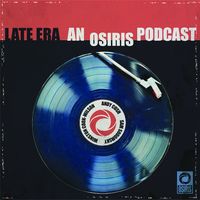Please login or sign up to post and edit reviews.
World Service Music Documentariesinactive
- Publisher |
- BBC
- Media Type |
- audio
- Podknife tags |
- Music
- Categories Via RSS |
- Music
All the BBC World Service music podcasts gathered into one place. New documentaries will be added intermittently. Only available in the UK.
- Country Of Origin |
- United Kingdom
- Produced In |
- United Kingdom
- Frequency |
- Periodic
- Explicit |
- No
This podcast currently has no reviews.
Submit ReviewJul 25 | 00:49:25
Tuku Music
Jan 05 | 00:48:48
Our Love for Indian Classical Music
Dec 29 | 00:50:56
It Jus' Keeps Rolling: The Story of Ol' Man River
Dec 01 | 00:49:31
Black Fire
Nov 02 | 00:49:32
My Madonna
Aug 18 | 00:26:31
Aretha Franklin: Queen Of Soul
May 05 | 00:29:16
Carla Bruni: C’est la Vie
Apr 09 | 00:49:17
Martin Morales’s Peruvian Roadtrip
Mar 31 | 00:49:32
Yevgeny Murzin: Master of the Synthesiser
Jan 03 | 00:26:30
Aretha at 75
This podcast could use a review!
This podcast could use a review! Have anything to say about it? Share your thoughts using the button below.
Submit ReviewYou might also like





